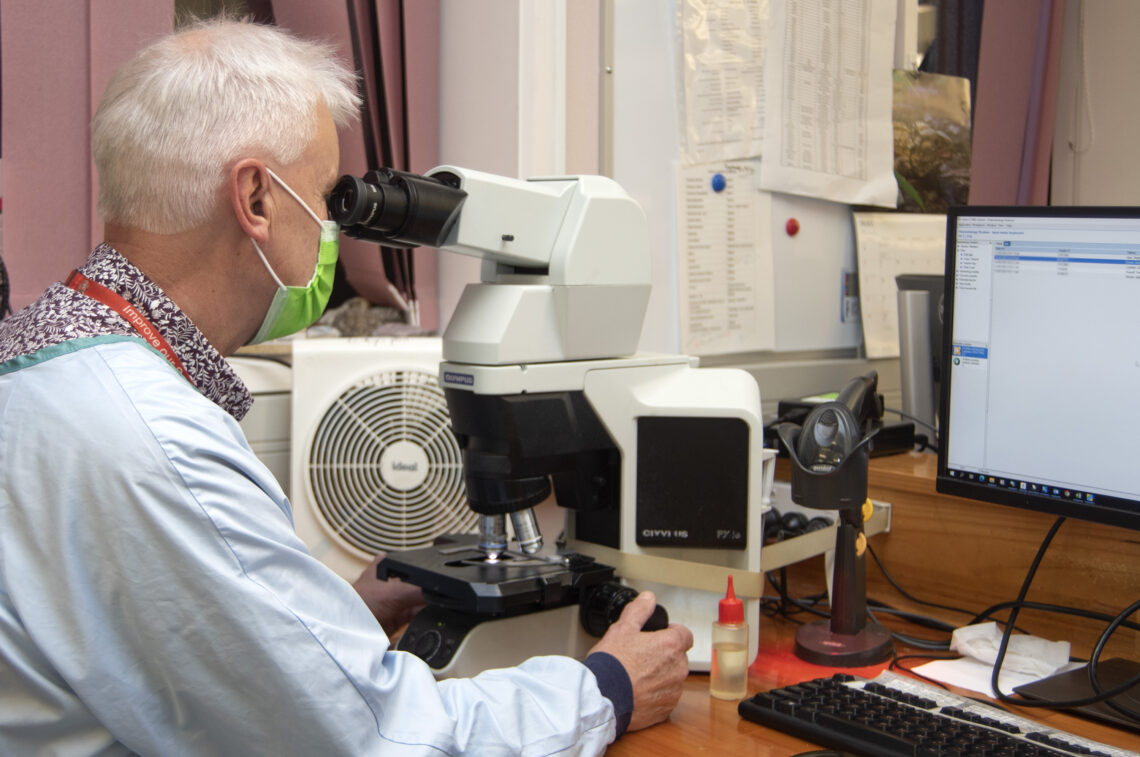The Haematology department at Canterbury Health Laboratories offers an extensive range of diagnostic and clinical services, which covers all blood and coagulation disorders.
Core Haematology processes full blood counts using a fully automated Sysmex track incorporating three XN analysers and two slidemaker stainers.
Blood film morphology is reported with the aid of DI60, a digital automated blood cell analysis system. A consultative service is available for referral of blood and bone marrow analysis and a Haematologist is available at all times for advice and interpretation.

The Haemostasis laboratory is part of the Haematology Department and is responsible for the testing of the haemostasis system. This includes tests for thrombotic and bleeding disorders and the monitoring of anticoagulant therapies.
The laboratory is a major referral centre for specialist haemostasis testing such as Thrombophilia, Lupus Anticoagulant, von Willebrand and Platelet function testing as well as most other haemostasis tests. It also works closely with the clinical haemostasis department to provide clinical and laboratory advice and is involved in numerous clinical trials.
The Surface Markers laboratory is a specialist area of Haematology which uses flow cytometry technology. The majority of testing performed focuses on the detection and classification of leukaemia and lymphoma.
Other tests carried out in this laboratory include diagnosis of paroxysmal nocturnal haemoglobinuria (PNH), estimation of fetomaternal haemorrhage using anti-HbF antibodies, CD34+ stem cell enumeration and assessment of minimal/measurable residual disease in patients with B-cell acute lymphoblastic leukaemia.
Diagnosis and management of many haematological disorders is achieved through a coordinated approach involving morphological, immunophenotypic, cytogenetic and molecular assessment.
The Special Haematology lab is the part of the core Haematology laboratory where specialist tests to diagnose thalassaemia, abnormal haemoglobins and haemolytic anaemia are performed.
Thalassaemia and haemoglobinopathy testing comprises a series of tests, including haemoglobin electrophoresis techniques, HPLC, stability testing and alpha thalassaemia screening, to reach a conclusive result; this work also often involves referral for further testing, such as DNA sequencing of alpha and beta genes, and mass spectrometry, to other departments when indicated.
Haemolytic anaemia testing primarily involves the screening, and subsequent quantitative determination of G6PD in blood, as well as Pyruvate Kinase screening and Urine Haemosiderin testing.